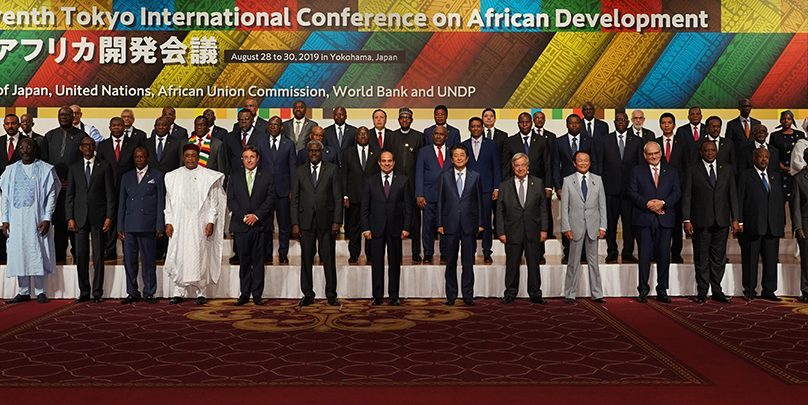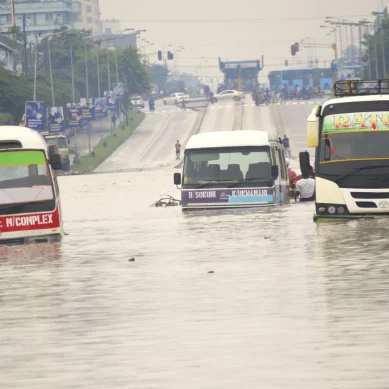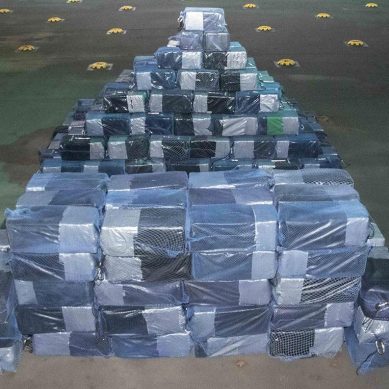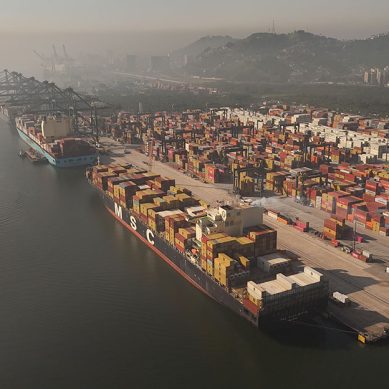
Japan’s commitments to democratisation makes the choice to host the next Eighth Tokyo International Conference on Development (Ticad) in Tunisia awkward for many Japanese actors. The parley, commonly known as the Japan-Africa Forum, in Tunisia runs from August 27-28.
According to Shinichi Takeuchi, the Director of the Centre for African Studies at the Tokyo University of Foreign Studies, “We see some tendencies toward authoritarianism in Tunisia as shown by the recent protests against the draft constitution which creates a highly centralised presidential system and undermines the democratic trajectory since the Ben Ali regime was removed.”
Takeuchi, who is also a former director general at the Japan External Trade Organisation’s Institute for Developing Economies, says, “Many Japanese involved in African affairs are very sensitive to Japan being perceived as strengthening undemocratic actors and governments. We are concerned that Prime Minister Fumio Kishida’s presence in Tunis sends a wrong message about our firm commitment to democracy and good governance in Africa and around the world.”
The ABE Initiative (Master’s Degree and International Program on African Business Education Initiative), an outcome of Ticad 5, inspired by Shinzo Abe, is arguably Ticad’s most iconic program. It brings hundreds of African students to Japan each year to train in Japan’s top graduate schools.
Along with other Japanese scholarship initiatives such as the prestigious Monbukagakusho programme, which has sponsored over 100,000 university students, the ABE initiative has helped build a pool of African professionals and scholars.
Another Ticad flagship program, the Enhanced Private Sector Assistance for Africa Initiative (EPS4A) was co-founded in 2005 by Japan and the African Development Bank (ADB) to develop Africa’s private sector. It has invested over $13 billion on a 50-50 basis, signifying strong African co-ownership.
TICAD is also distinctive for its focus on peacebuilding. The Triangular Partnership Project for African Rapid Deployment of Engineering Capabilities (ARDEC) trains African peacekeepers on maintaining and servicing heavy equipment.
Through a partnership with UNESCO’s International Institute for Capacity Building in Africa, Ticad also supports the incorporation of peace education into African educational curricula from high school to the university level. In the current programme cycle, the “Consolidation of Peace Program” focuses on supporting civil society actors, mainstreaming youth and women’s empowerment into all development programming, and supporting human rights institutions.
TICAD’s 50-50 funding model with the ADB underscores Japan’s approach of treating partners as agents, not mere recipients. This is called sōgokankei – emphasising mutuality. Ambassador Erastus Mwencha, the former Vice Chairperson of the African Union Commission (AUC), notes that “donor-recipient relations are inherently asymmetric. However, Japan’s insistence on co-ownership allows African stakeholders to exercise greater agency than with others.”
According to Hannah Ryder, Africans also exercise more agency because Ticad involves non-African and non-Japanese partners.
“They [Africans] can get those partners to co-finance infrastructure projects or use their procurement power to encourage Japanese firms to invest in African manufacturing among other things,” says Ryder, a former British envoy to Kenya.
Since Ticad One, African civil society and NGOs have made their voices heard through direct participation in UNDP’s TICAD Multisectoral Dialogues where they participate on an equal footing with government officials.
Ahead of each round, Ticad invites applications from non-governmental bodies to participate in a month-long program of exchanges at the meeting venue, making the summit part of a longer program of citizen engagement.
African governments often remain too passive, however, says Hannah Ryder. “They tend to allow the other party to set the agenda, only coming in when there are red lines, of which there are usually none.” Hence there is need for stakeholders to push for a clear African position, drawing lessons from what independent Africa-China Working Groups did ahead of FOCAC 8, which shaped the AU’s strategy.”
Greater African agency is also needed to change Japanese risk averse perceptions of Africa. Japan-African trade is modest at $24 billion per year. However, Japan’s approach to FDI and economic development seeks to be qualitatively different.
According to Shinichi Takeuchi, “Japan’s capital investments seek to: keep Africa’s debt burdens low, empower and strengthen African private sectors and involve beneficiaries in identifying priorities. Slowness and hesitation are in our [Japanese] genes, but when we come in, it is good and long lasting. We don’t just want to get in and get out.”
Denis Matanda agrees, “I think Japan’s assistance to Comesa provides a model. I can attest to the fact that beneficiary countries and stakeholders are involved at every stage. The Japanese side also seems to dislike creating dependency. If you look at Japan’s activities in automobile technology, you will find forward and backward linkages, such as maintenance and spare parts right here in Africa. And most of the Japanese technologies in Africa are sourced and exported by Africans, from cities like Osaka and Kobe, where African exporters have established themselves since the late eighties.”
“This is where Japanese-trained African professionals can be key, if only they are involved in efforts to woo Japanese investors and engage the Japanese government more strategically,” says Phillip Olayoku of the African Association of Japanese Studies in Nigeria.
“Japan’s approach is very unique,” says Kenichi Ohno of the Tokyo-based National Graduate Institute for Policy Studies. “However, African countries have to be patient. Slowness and hesitation are in our [Japanese] genes, but when we come in, it is good and long lasting. We don’t just want to get in and get out.”
African countries are focused on economic transformation and conflict resolution, meaning that Agenda 2063 and Silencing the Guns 2030 will be the main frameworks going forward. Accordingly, four broad elements will shape the Ticad partnership. First, is the continuing need to close Africa’s infrastructure gap – a key pillar of Agenda 2063. Japan’s influence in the G7’s Build Back Better World (B3W) could help unlock finance while keeping debts low.
The second priority is value-addition, which will require Japanese firms to invest up the value chain to boost the quality of African exports.
The third is to operationalise the African Standby Force Mechanism – as a tool that can contribute to conflict resolution. At Ticad 7, Japan committed itself to supporting the AU’s “Silencing the Guns” Initiative. Supporting conflict resolution efforts in five designated priority geographic regions: the Horn of Africa, North Africa, Sahel, Sudan and South Sudan is a central feature of this line of effort.
Finally, African stakeholders will be looking for ways to increase their strategic engagement by pushing to better leverage TICAD’s unique strengths in human resource development, technology transfer, and private-sector capacity building. TICAD is conducive to this as it is structurally designed to allow citizen inputs.
- An African Centre for Strategic Studies report











